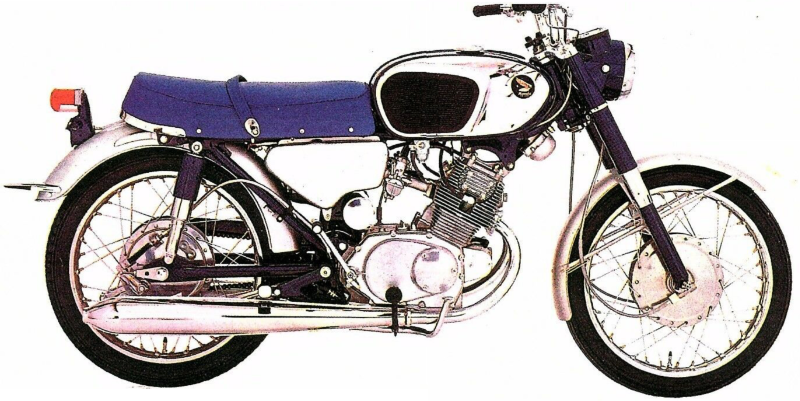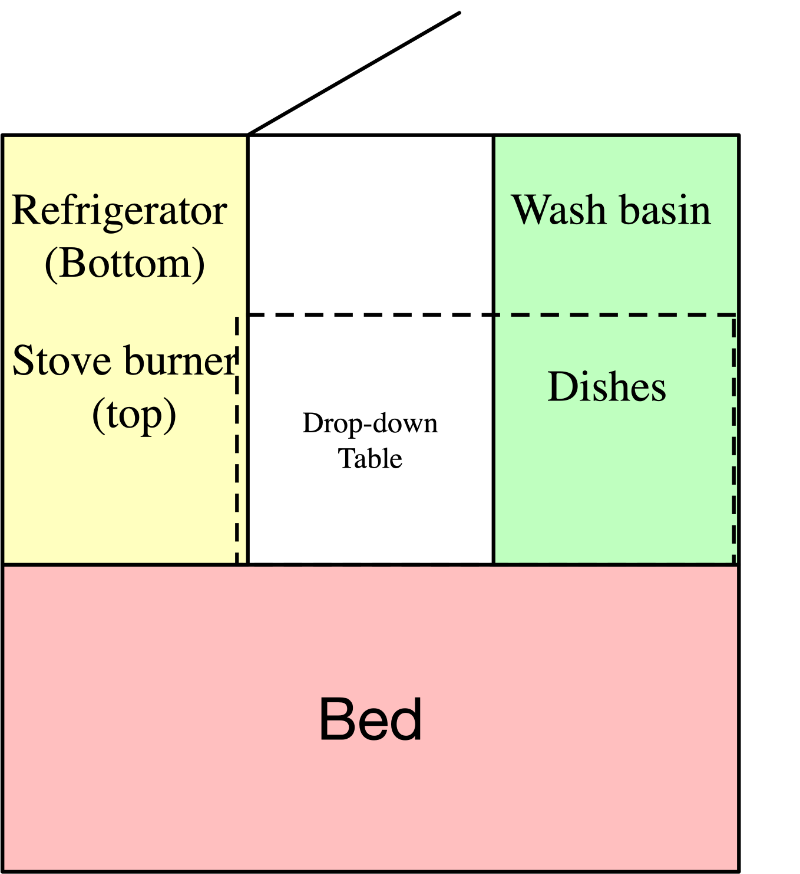September 9th, 2021
I was the model child in our family of four boys. I never did anything wrong, I got great grades, and behaved myself. But in my 18th year, the combination of my growing sense of independence and my father’s depression (I inherited the same bad gene from him) led to a confrontation that ultimately drove me away. I left home and went out on my own.
The first thing I needed was transportation. I couldn’t afford a car. I had perhaps $500 saved up from my paper route while in high school, and I spent $275 on a Honda 160. This was the smallest motorcycle I could have that was still big enough to be permitted on the freeway. It had 16 horsepower and could reach a top speed of about 65 mph.

A friend got a job for me working at a hamburger place. I did very well there and was quickly promoted to be the only assistant to the manager at slow times. Then one day, seized by my weird sense of humor, I cracked to the boss “You know, anybody who takes hamburgers seriously has got to be out of their minds.” That was the end of that job.
I got another job helping a gardener. I worked hard for several months. Then in August, the boss went on a three-week trip and another fellow, a previous employee of his, came in. The two of us did the work. But the older fellow seemed to think that we were on a short schedule; we finished work about two hours earlier than I had with the boss. I couldn’t understand why, but figured that he knew what he was doing. When the boss came back after his trip, he fired the both of us for not doing the full job.
I was living in a little rental house with a high school chum. This place was run-down, but it was adequate. I also got some work tutoring a few neighbors for their algebra course.
In September, 1969, I moved to the University of California at Davis and rented a room in a trailer with another fellow. I lived there all through my sophomore year, and I got a part-time job working at the Toyota dealership just down the street, washing cars and cleaning things as needed. In the summer of 1970, I lost my rental in the trailer, but ended up spending the summer in a tiny trailer owned by a friend named Conrad. This trailer was the pinnacle of small-space efficiency. It was, I think, a six foot cube. Here’s the floor plan:

I think that Conrad asked for only $25 a month for the three months of summer when he was gone. It was in the cheapest place in the trailer park: right next to the train tracks. The trailer park had a central building with toilets and showers. But this was during the Vietnam War, and every morning at 3:00 AM a big train carrying ammunition from a storage area in Nevada passed through, taking its load to the San Francisco Bay Area where it would be loaded onto ships for transport to Vietnam. Being only about twenty feet away from the train tracks, you can imagine that the roar of the ammunition train was rather loud. After about a month, I had gotten used to the sound. Then one night, at 3:00 AM, nothing happened. No train. I jumped out of bed and said, “What was that??!!” I’m not kidding. That old joke really is true.
My lifestyle was similarly constrained. I ate simple food that could be heated up; I never cooked in the sense of combining ingredients. I never ate out, nor did I ever purchase any clothes. I wore the clothes my parents had purchased for me while I was in high school. In winter, I just wore more clothes. I did purchase clothing at a store at McClellan Air Force Base that sold worn-out stuff; I got orange flight suits that were perfect for wearing on the motorcycle. I also bought a heavy coat there once. I had two pairs of shoes: my big brother’s combat boots from Vietnam, and a pair of sneakers.
My expenses were as follows:
Tuition: $900 per year. ($6300 in 2021 dollars)
Textbooks: $300 per year. ($2100 in 2021 dollars)
Motorcycle parts: $200 per year. ($1400 in 2021 dollars)
Gasoline: $40 per year. ($280 in 2021 dollars)
Food: $100 per year. ($700 in 2021 dollars)
Total: $1540 per year. ($10,780 in 2021 dollars)
Note that I do not include rent here; that’s because at the beginning of my junior year, a friend told me about a cheap place to live: an old farm workers’ cabin north of town. There was no rent; I was required to feed hay to the cattle if the farmer decided to take a vacation. In three years’ time, that happened just once.
Of course, the little cabin was primitive. It had no bathroom or toilet. There was an oven and a stove, but they were of such, er, a poor state of cleanliness that I used only the stove, and then for heating up canned beans or canned soup. There was a very old refrigerator from the 1930s:
It looked rather like this except that the body was painted bright yellow and the top was painted bright red. It worked.
There was an outhouse behind the cabin, but it wasn’t in great shape and there were black widow spiders inside, so I never used it. Instead, I used little plastic bags that I threw inside.
I did what I could to improve the place. I hauled off a pile of garbage that had been piled up in an outer room; I can’t recall how I accomplished that with only a motorcycle. I repainted the outside, and added a swamp cooler. I checked Google Maps and it appears that the old cabin is still there, although a great deal has changed around it.
When Kathy and I got married, she moved in with me and did what she could to brighten up the place. Our wedding present from the family was some money to buy a used VW. Kathy had a part-time job on campus, which gave us tons of extra money. We got a telephone line, although it was a party line (three houses on a single phone line; you had to keep your conversations short.) We even splurged on a weekly trip to Baskin-Robbins.
My point is that it is possible to live on a tighter budget than many people live on these days. Consider all the luxuries that students these days consider to be essential: a car, a computer, Internet service, a cell phone, going to movies and eating out on a regular basis, having a decent collection of clothes, air travel home and/or to Europe.
I have no sympathy for people who complain that they have student debts exceeding $100,000.
